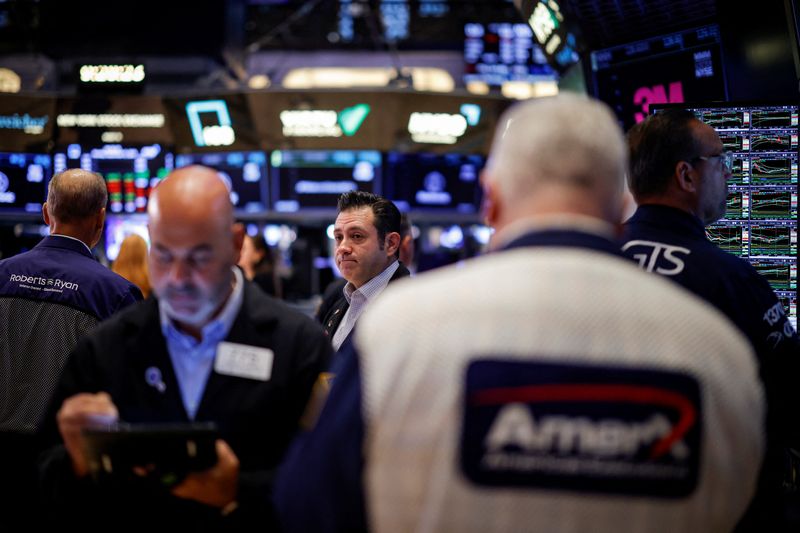Street Calls of the Week
Investing.com - Uncertainty around "prolonged" policy moves of President Donald Trump’s administration presents the "biggest risk" to U.S. economic growth, according to analysts at BlackRock.
In a note to clients, the analysts led by Jean Boivin added that while current conditions do not necessarily signal a recession in the U.S., continued fluctuations in Trump’s plans, particularly around trade, could hurt activity.
Stocks on Wall Street have shown early signs of stabilizing this week following several days of turmoil fueled in large part by Trump’s on-and-off tariffs on close allies like Canada and Mexico.
Rapid shifts in the status of the tariffs as well as a series of escalating threats from Trump himself have contributed to a murky economic outlook marked by sliding consumer sentiment and rising inflation expectations.
Still, recent days have seen a relative lack of pronouncements around trade, with media reports suggesting that White House officials may be reassessing their approach to the tariffs.
More details on the levies are yet to come. Trump has vowed to impose a trade tax on autos beginning April 2 and roll out a broader agenda of reciprocal tariffs that would make the U.S. match all duties on U.S. goods imposed by other countries.
"We think the biggest risk to U.S. growth is prolonged policy uncertainty. U.S. stocks could face more near-term pressure, but we stay overweight on our tactical horizon," the BlackRock (NYSE:BLK) analysts said.
They added that they are remaining underweight on long-term Treasuries due to the prospect of increasing yields and argued that gold "could be a better diversifier" for portfolios than U.S. debt "in this environment."
The Federal Reserve, meanwhile, is tipped by BlackRock to keep interest rates steady at the conclusion of its latest two-day gathering this week, after it pushed pause on an easing cycle in January. They noted that, even if policy uncertainty ends up weighing on growth, "persistent inflation" is expected to limit how much the Fed can cut rates in the months ahead.
